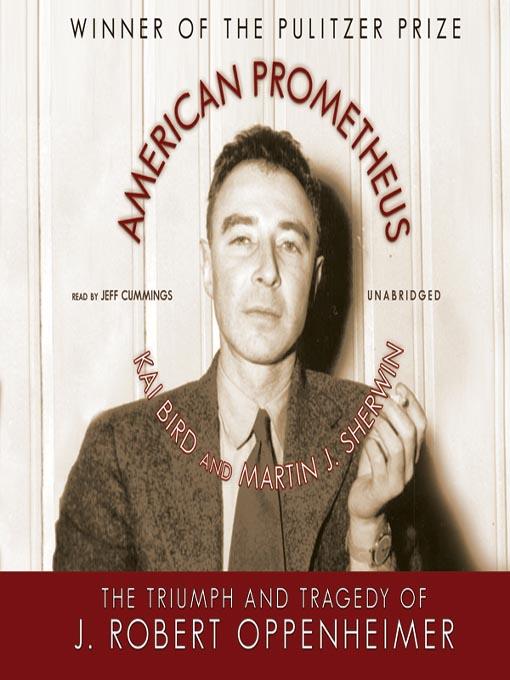
American Prometheus
The Triumph and Tragedy of J. Robert Oppenheimer
کتاب های مرتبط
- اطلاعات
- نقد و بررسی
- دیدگاه کاربران
نقد و بررسی

J. Robert Oppenheimer used his brilliant mind to organize and build the first atomic bomb. At war's end he faced a harder battle--suffering the '50s pogroms of Senator Joseph McCarthy and J. Edgar Hoover for his and his wife's ties with the Communist Party. Oppy's life brought him into the spheres of the great intellectuals and politicos of the time. Although Jeff Cummings moves briskly, his phonetics never soften. Cummings faces a prodigious text with more facts, quotes, and testimony than fuzzy stories. He could have used theater voices for the rapid-fire Senate interrogations, but the tempo and detachment he assumes fit the task. He uses an unstudied gringo accent for the occasional Spanish names and words. J.A.H. (c) AudioFile 2007, Portland, Maine

Starred review from March 7, 2005
Though many recognize Oppenheimer (1904–1967) as the father of the atomic bomb, few are as familiar with his career before and after Los Alamos. Sherwin (A World Destroyed
) has spent 25 years researching every facet of Oppenheimer's life, from his childhood on Manhattan's Upper West Side and his prewar years as a Berkeley physicist to his public humiliation when he was branded a security risk at the height of anticommunist hysteria in 1954. Teaming up with Bird, an acclaimed Cold War historian (The Color of Truth
), Sherwin examines the evidence surrounding Oppenheimer's "hazy and vague" connections to the Communist Party in the 1930s—loose interactions consistent with the activities of contemporary progressives. But those politics, in combination with Oppenheimer's abrasive personality, were enough for conservatives, from fellow scientist Edward Teller to FBI director J. Edgar Hoover, to work at destroying Oppenheimer's postwar reputation and prevent him from swaying public opinion against the development of a hydrogen bomb. Bird and Sherwin identify Atomic Energy Commission head Lewis Strauss as the ringleader of a "conspiracy" that culminated in a security clearance hearing designed as a "show trial." Strauss's tactics included illegal wiretaps of Oppenheimer's attorney; those transcripts and other government documents are invaluable in debunking the charges against Oppenheimer. The political drama is enhanced by the close attention to Oppenheimer's personal life, and Bird and Sherwin do not conceal their occasional frustration with his arrogant stonewalling and panicky blunders, even as they shed light on the psychological roots for those failures, restoring human complexity to a man who had been both elevated and demonized. 32 pages of photos not seen by PW.

























دیدگاه کاربران